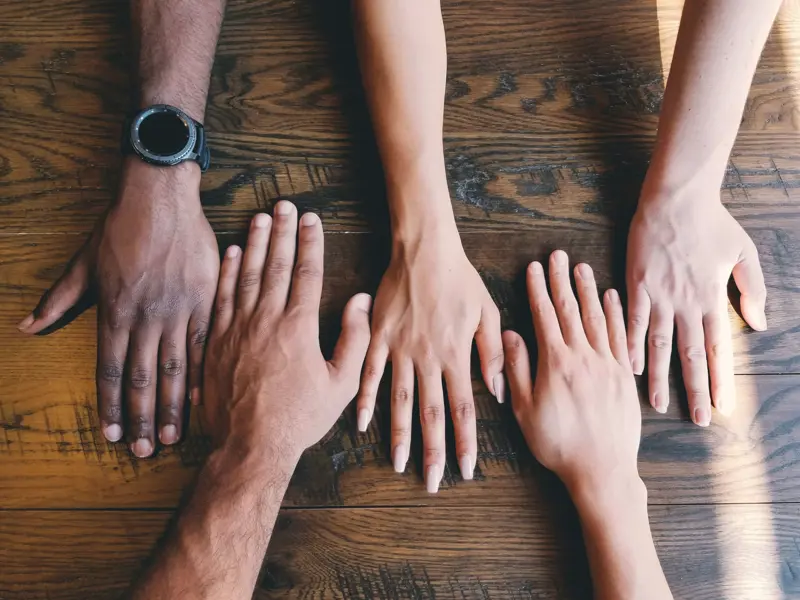I recently graduated from Northeastern Seminary with my Doctor of Ministry degree. When it came time to choose a focus for my dissertation, I found myself reflecting on the events of the summer of 2020; a pivotal year for many of us. The COVID-19 pandemic had forced a global lockdown, and the world seemed to stop in its tracks. At the same time, protests erupted across the globe, with chants of "Black Lives Matter" ringing out as people took to the streets in response to the death of yet another Black man at the hands of the police. Alongside these calls for justice, there were also cries to remember the lives of Black and Brown women, who too had suffered racial violence and discrimination.
For me, these events felt deeply personal, perhaps because the isolation of the lockdown gave me the space to reflect. As an African American woman, I couldn’t help but wonder: Who, if anyone, would speak my name, or care to remember my story? Black lives matter, all of them: including mine, but that reality often seems at odds with the narrative I’ve been taught and shown. This is the very reason so many people took to the streets in protest that summer. The pain of this moment was palpable, yet there was hope in the sheer number of people: Black, White, and Brown, boldly proclaiming, "Black Lives Matter."
Who, if anyone, would speak my name, or care to remember my story?

The Say Her Name movement specifically brought attention to the lives and stories of Black and Brown women. As a woman of color, I carry the weight of being both a minority in a predominantly White society and a woman in a predominantly male world. The Say Her Name movement addresses both of these aspects of my identity. It was the starting point for my dissertation. In the life and death of Breonna Taylor, an EMT who was killed in the sanctity of her own home, I saw a reflection of my own life.
When I began my Doctor of Ministry program, I didn’t fully realize how profoundly the events of that summer had impacted me. After the lockdown was lifted, I was no longer the same person. The events of that summer shifted my perspective, changing the way I view the world and my place in it. A sense of dread and anxiety has settled within me, and the world now feels like a more fearful place. Though my personal experience with hate and discrimination is not new, the realization that these forces can invade the sanctuary of my home, like they did for Breonna Taylor, has created a new reality. There are no longer any safe spaces where we can simply live, survive, or thrive.
Yet, my dissertation was not only about reflecting on contemporary events but also about how the Bible helps us navigate these painful realities. I was drawn to the stories of women in the Bible; women who, though unnamed, offer a glimpse of a God who sees them and cares for them. I believe their stories are part of God’s unfolding redemptive plan for the world. I felt an immediate connection to these women, as their experiences resonated deeply with my own and with the lives of the women I know and love.
I was drawn to the stories of women in the Bible—women who, though unnamed, offer a glimpse of a God who sees them and cares for them.
The stories of these nameless women in the Bible provide hope and encouragement to those who face violence, discrimination, hopelessness, marginalization, and oppression. They remind me that, even in the midst of circumstances beyond my control, I can still make a difference. I can affect change in my life and the world around me. No act, no matter how small, is without impact. Whether through my time, talents, gifts, or simply my life, I can make a difference in the lives of others.
As I continue my journey, I carry with me the belief that God sees me, and that my story, too, matters.
But this isn’t just about my story. It’s about all of us.
Whose names are we willing to say? Whose stories are we willing to honor?
Who are you being called to see? To listen to? To remember?
May we be people who make space for stories that have been silenced.
May we live like it matters: because it does.

About the author
Shavonn Lynch
Shavonn Lynch lives in the beautiful, historical of Auburn, NY situated in the picturesque Central New York region. Shavonn has received her Master of Divinity and Doctor of Ministry from Northeastern Seminary at Roberts Wesleyan University. Shavonn’s Bible study Unnamed Women of Yesterday and Today is her first published work. Shavonn has in interest in how stories of nameless women of the Bible provide hope and inspiration for marginalized and oppressed persons. Family and faith are important aspects of Shavonn’s life. Shavonn enjoys spending time relaxing with her beloved cat Smokey Bones.
Shavonn's Book: Unnamed Women of Yesterday & Today